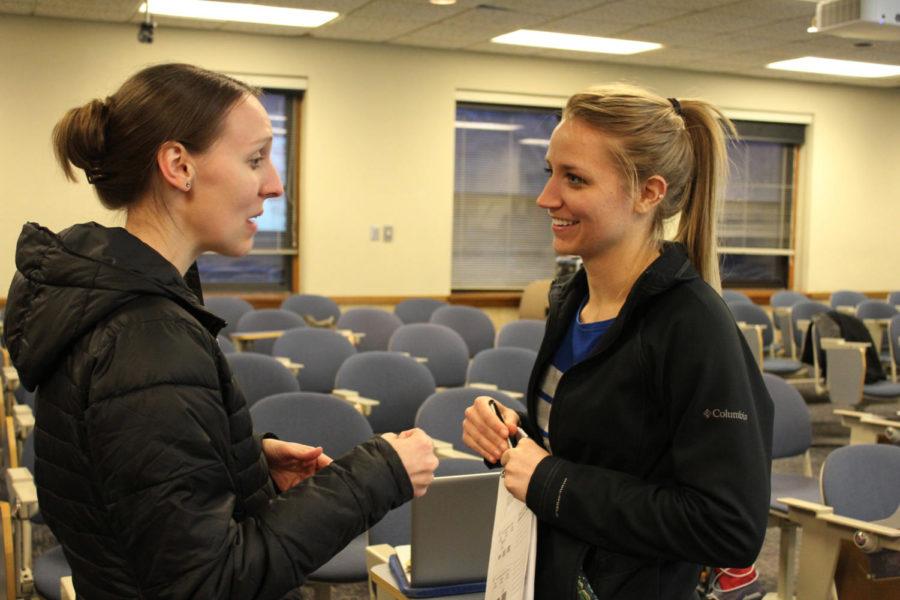Students utilize different way to worship
April 4, 2013
Pentecostal Christians on the ISU campus find it useful to speak in tongues in order to connect with God.
“Speaking in tongues refers to vocalizations attributed by believers to supernatural causes, and usually unintelligible to the speaker or listeners,” said Hector Avalos, professor of religious studies at Iowa State.
Many Pentecostal Christians on campus use speaking tongues as a guidance in their life.
Ashley Moeller, senior in interior design, said that speaking in tongue happens when the Holy Spirit is baptized into your body.
“The Holy Spirit is a type of prayer language that you can use to pray to Jesus,” Moeller said. “Speaking in tongues is just a physical manifestation of the Holy Spirit inside of you. It’s kind of guidance in our lives as Christians. It provides us with boldness and it’s a way that we communicate through the father when we don’t have the words to pray over something.”
Moeller was a child when she had her first experience in speaking tongues. She comes from a family who speaks in tongues to worship.
“I was 10 when it happened, so it can happen at various ages. My dad had prayed with me in my bedroom about it, and I just kind of picked it up,” Moeller said.
Moeller is a member of LifePointe church in Ames and a member of Chi Alpha, a Pentecostal fellowship on campus. During the services at LifePointe and Chi Alpha, many members will speak tongues throughout the service, Moeller said.
“When I speak in tongues, I’m allowing the Holy Spirit to speak through me, and I’m just saying, ‘God, I want you to reign in my prayers and God, I want you to reign in my life,’” said Isaac Glidewell, senior in mathematics.
Moeller believes that everyone has the power to speak tongues, but sometimes it can be a process to make it happen.
“There are some that have been prayed over to receive the baptism, and it just hasn’t manifested or shown up in their life through the form of speaking tongues,” Moeller said.
Speaking in tongues isn’t a new phenomenon for Pentecostal Christians; it has been around since biblical times and is cited many times throughout the bible.
“The key passages are Acts 2, and 1 Corinthians 14:2-5, 27. In Acts 2, the ability to speak in actual human foreign languages was part of the gifts that Christians received in order to carry out their Christian mission,” Avalos said.
Many people who have the gift to speak in tongues will speak languages that are not understood through any human language.
“There are also ‘angelic tongues’ that require an interpreter and are not human languages. These are the ones that most Pentecostals claim to speak today,” Avalos said.
Although speaking in tongues isn’t always understood, it has paved the way for a meaningful experience for Moeller.
When Moeller was younger she used to attend a Christian summer camp. She had bad asthma at the time. One night, a group of campers started to speak in tongues during worship.
“After this night, I no longer was short of breath and I never experienced another asthma attack,” Moeller said.
Glidewell believes that speaking in tongues and being baptized in the Holy Spirit has helped him as a Christian.
“Speaking in tongues as a personal prayer language is more edifying for me and building up my faith,” Glidewell said .
While there are many Christians who believe that speaking tongues is a legitimate form of worship, there are those who don’t believe in it as an appropriate form of prayer.
“Many religions do find it to be a legitimate form of worship,” Avalos said. “Tongues could be used for prayer or for conveying divine messages to fellow Christians. There are still a few groups of Christians who believe that speaking in tongues is not legitimate but rather some sort of demonic delusion.”







